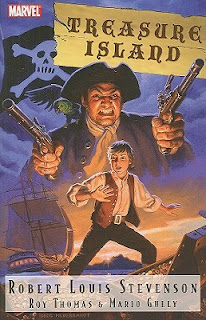My friend Lynne asked at our last book club meeting, “Should I let my daughter read The Kite Runner?”
Lynne’s daughter is 15, intelligent, and well read.
But I remembered one especially brutal scene in
The Kite Runner. Everything else in the book points to it or leads from it, so it’s not something one could skip to avoid being disturbed.
I told Lynne no.
Then I saw The Kite Runner on the banned book list on ALA’s website, and I decided to look at it again. As I flipped through the opening pages, I remembered why I enjoyed it so much.
Why It’s Great
In The Kite Runner, Khaled Hosseini tells the story of a man haunted by his childhood. The opening lines read:
I became what I am today at the age of twelve, on a frigid overcast day in the winter of 1975… That was a long time ago, but it’s wrong what they say about the past, I’ve learned, about how you can bury it. Because the past claws its way out.
Hosseini vividly describes the tumultuous world of Afghanistan in the late 20th century. He effectively brings us into a setting so different from America by describing it through the voice of a boy. Amir experiences emotions we can identify with. He loves and fears his father, and pines for his approval. He struggles with jealousy, loyalty, and worst of all, bullies. One in particular, who worships Hitler, will irrevocably change Amir’s life.
Throughout all of this, Hosseini weaves the consistent theme of the power of words, the relevance of stories. His writing is easy to read, yet potent, making it a valuable book.
 |
| Hosseini dedicated his book to the children of Afghanistan |
Why It’s Controversial
The ALA site reports challenges to The Kite Runner for language and violence. And yes, it has legitimate examples of both. By page seven, a main character is assaulted with profanity and obscene gestures. But, importantly, Hosseini shows how the insults hurt the character; we empathize with his pain.
The critical scene of the book comes a few chapters later. Hosseini masterfully describes an act of brutality that one human being imposes on another. We stand in a cold alley with Amir and watch. Fear runs through our veins too.
There’s other violence: murders, suicides, war. But those things happen in Afghanistan and many other parts of the world, and we shouldn’t hide from them. But do children need to know? I want to protect my kids as long as possible from learning that bad guys really do exist. That evil does hold a place in the world.
But by the time kids are in high school, they are learning about the atrocities of World War II. Most know life isn’t a fairy tale. They could benefit from learning about the conflicts of the Middle East.
Does it have a place in the classroom or school library?
Honestly, until a few weeks ago, I thought The Kite Runnerwas strictly an adult book. But I can see potential for learning. A high school teacher could compliment this book with units on Afghanistan, the Middle East, or Islam. Reading The Kite Runner could help high school students make sense of the headlines and video clips they see on the news. It could inspire appreciation for the stability and security we enjoy as Americans. Most of all, students could learn from Amir’s faults and vow not to repeat his mistakes.
Amir’s father says: “A boy who won’t stand up for himself becomes a man who can’t stand up to anything.”
A worthy sentiment to ponder in any country, at any time, don’t you agree? Leave your comments below.
So Lynne, I’d let her read it. But warn her: it can be brutal. And of course, talk about the book with her.
Note: Khaled Hosseini has released The Kite Runner as a graphic novel , a format that might be more palatable to reluctant readers.
For more reviews of banned books and giveaways, see Book Journey.
Book Week Giveaway
This week, in honor of the books I love, I am offering a giveaway of one of the following. All of them have faced challenges or bans in the past few decades, as reported by the
ALA website. All have also been reads I’ve thoroughly enjoyed, as a child and an adult:
- To Kill a Mockingbird
- A Wrinkle in Time
- The Giver
- The Outsiders
- The Kite Runner
- Bridge to Terebithia
- I Know Why the Caged Bird Sings
How to win?
- The winner will be picked at random from comments on this post and my vocabulary post on expurgated.
- Comments must be made by Oct 8. The winner will be announced Oct 9 in my vocab post.
- The giveaway is open to anywhere that Amazon ships.
Julia

















